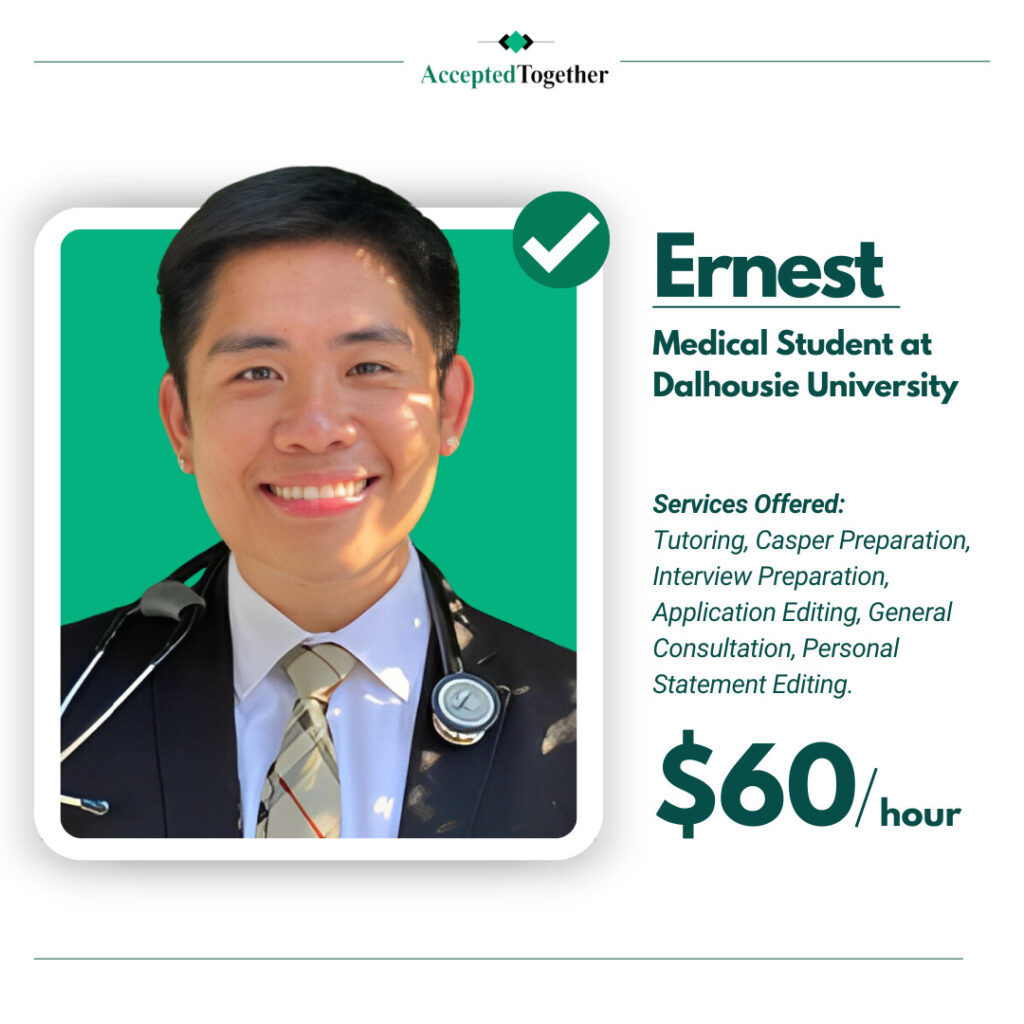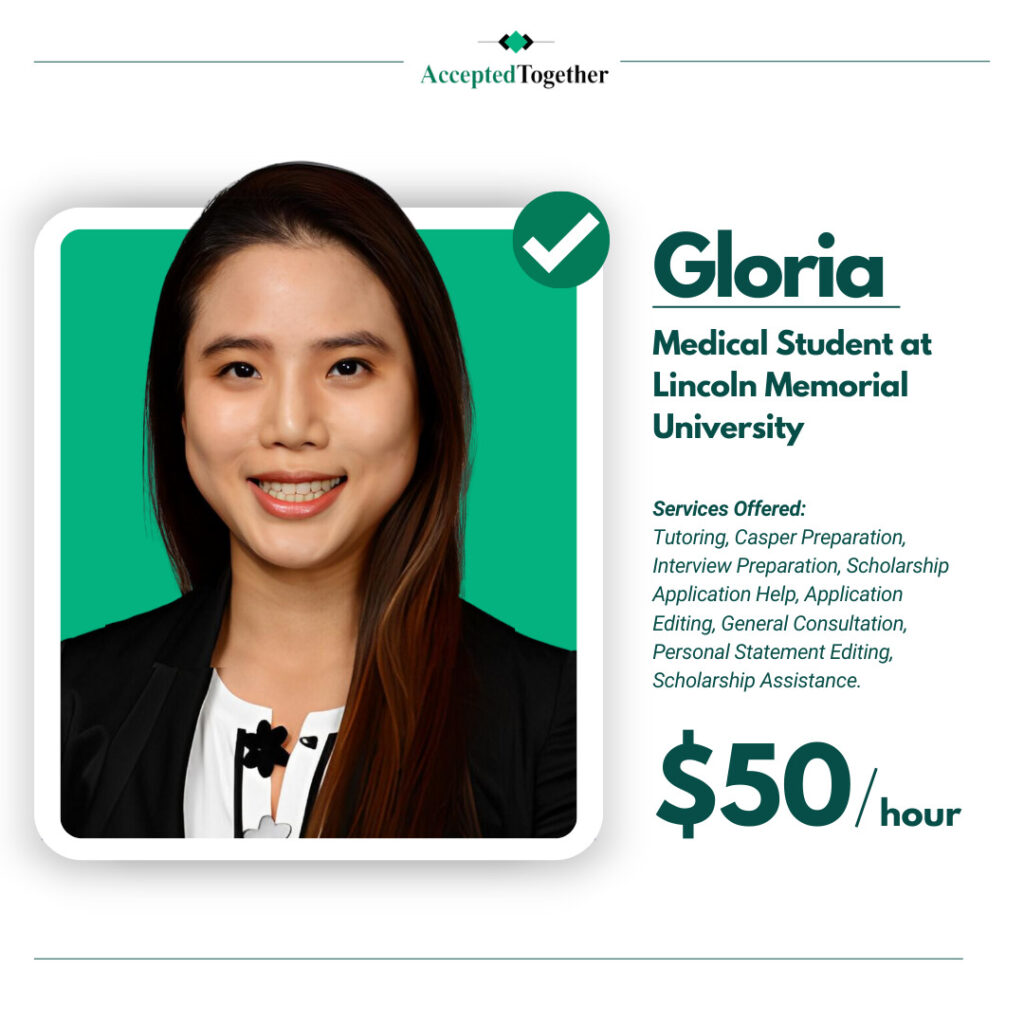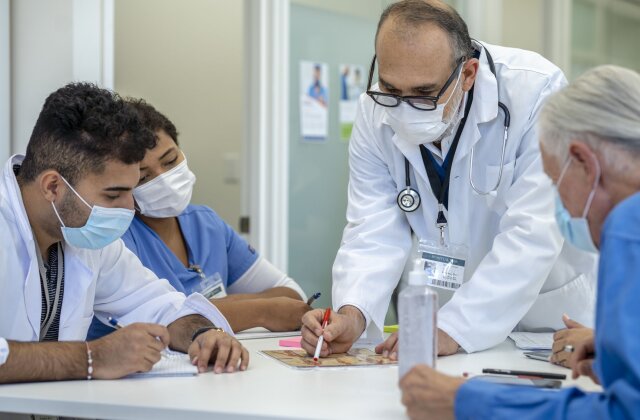Last updated on May 5th, 2025 at 09:36 am
Table of Contents
Introduction
The journey to becoming a physician is both challenging and rewarding. Deciding to take a gap year before medical school is an important decision that can significantly impact your future career. This year can be a valuable opportunity, not only for personal growth but also to enhance your application. Many students find that a well-structured gap year allows them to gain experiences and skills that they might not have had time to develop during their undergraduate studies.
This guide offers insights on how to make the most of this time, ensuring that it’s more than just a break—it becomes a period of strategic growth and exploration. Whether you’re looking to gain professional experience, explore a passion, or simply need time to reflect and strengthen your skills, this guide will help you turn your gap year into a powerful asset that boosts your chances of acceptance. By planning carefully and making intentional choices, you can transform this year into a critical step on your path to becoming a successful physician.
Click to see hundreds of consultants who can mentor you:


Recognizing the Importance of a Gap Year
Understanding the value of a gap year is crucial. It’s not just a break; it’s a chance to build a stronger application and prepare yourself for the challenges of medical school. In today’s competitive medical school admissions environment, standing out is more important than ever. A gap year can provide you with unique experiences that set you apart from other applicants. It allows you to take a step back from the fast pace of academia and reflect on what you truly want to achieve in your medical career.
Setting Personal and Professional Goals
A well-planned gap year can provide more than just a break from academics. It’s an opportunity to expand your horizons, gain new skills, and diversify your experiences. Whether you’re conducting medical research, engaging in global health initiatives, or exploring non-medical pursuits that still enrich your profile, this time should be used intentionally. Setting clear personal and professional goals at the outset of your gap year is essential for making the most of this time. These goals should align with your long-term career aspirations and help you develop the qualities that medical schools value, such as leadership, compassion, and resilience.
One of the key advantages of a gap year is the flexibility it offers. You can tailor your experiences to your specific interests and career goals. For example, if you have a passion for global health, you might spend your gap year working with a non-profit organization in a developing country. This experience could not only broaden your understanding of global health issues but also demonstrate your commitment to serving underserved populations—an important quality for future physicians.
Similarly, if you’re interested in medical research, your gap year could be spent working in a research lab. This would allow you to gain hands-on experience in conducting experiments, analyzing data, and writing research papers. By the end of the year, you might have co-authored a publication, which would be a significant addition to your medical school application.
Setting specific, measurable, achievable, relevant, and time-bound (SMART) goals can help ensure that your gap year is productive and meaningful. For example, instead of setting a vague goal like “gain medical experience,” you might set a SMART goal such as “complete 200 hours of clinical volunteering at a local hospital by the end of the year.” This approach will help you stay focused and motivated throughout your gap year.
Reflecting on Strengths and Weaknesses
Taking time to reflect on your strengths and weaknesses during your gap year is essential. Understanding where you excel and where you need improvement can help you focus your efforts on growth. This reflection is not just about acknowledging past experiences; it’s about transforming them into meaningful stories that will enhance your application. Use this time to target areas that may have been weaknesses in previous application cycles, and turn them into strengths that set you apart from other applicants.
For instance, if you struggled with certain subjects during your undergraduate studies, your gap year could be an opportunity to take additional coursework or tutoring to strengthen your knowledge in those areas. This proactive approach demonstrates to admissions committees that you are dedicated to overcoming challenges and improving your academic abilities.
Moreover, reflection during a gap year is not limited to academic strengths and weaknesses. It also includes evaluating your personal qualities and experiences. For example, if you realize that you lack experience in leadership roles, you might seek out opportunities to lead a team or organize a project during your gap year. This could involve anything from coordinating a community health fair to leading a research project. By taking on leadership roles, you not only develop valuable skills but also demonstrate to admissions committees that you are capable of taking initiative and managing responsibilities—qualities that are crucial for a successful medical career.
Reflection can also help you identify areas where you might need to improve your communication skills, empathy, or cultural competence. These are all important qualities for a physician, and your gap year provides a unique opportunity to work on them in a real-world setting. For example, volunteering in a multicultural community can help you develop a deeper understanding of diverse perspectives and improve your ability to communicate effectively with people from different backgrounds.
Timing Your Medical School Application
Strategic timing is key to a successful medical school application. A well-timed application can make all the difference in a competitive admissions process. Medical schools often operate on a rolling admissions basis, meaning that applications are reviewed and decisions are made as they are received. Therefore, submitting your application early in the cycle can significantly increase your chances of being accepted.
Avoiding Late Applications
It’s important to understand the medical school application timeline. Submitting your application late can lead to missed opportunities, such as being placed on a waitlist or missing out on interview spots. Your gap year should be used not only to enrich your experiences but also to ensure that every component of your application is ready to go when the time comes. Being organized and prepared will demonstrate your seriousness about your medical career.
To avoid the pitfalls of a late application, it’s essential to create a timeline for your gap year that includes key milestones for your application. This timeline should account for all aspects of the application process, including taking the Medical College Admission Test (MCAT), gathering letters of recommendation, and writing your personal statement. By setting deadlines for each of these tasks, you can ensure that your application is complete and ready for submission as early as possible in the cycle.
One common mistake that applicants make is underestimating the time it takes to write a strong personal statement. Your personal statement is a critical component of your application, as it provides an opportunity to tell your story and explain why you are passionate about medicine. To write a compelling personal statement, you’ll need to reflect on your experiences, articulate your motivations, and craft a narrative that ties everything together. This process can take several weeks or even months, so it’s important to start early and allow plenty of time for revisions.
Similarly, securing strong letters of recommendation requires careful planning. It’s not enough to simply ask your professors or supervisors to write a letter; you’ll need to provide them with information about your goals, achievements, and experiences to help them write a personalized and compelling letter. Additionally, some recommenders may need several weeks to complete their letters, so it’s important to request them well in advance of your application deadline.
Considering Application Deadlines and Interview Spots
Understanding application deadlines and securing interview spots is crucial. Early submissions are often given more consideration, so plan your gap year activities with these timelines in mind. Make sure that your application is submitted on time and that it reflects the rich experiences and skills you’ve gained during your gap year. Proper timing can make your enhanced profile stand out.
Another important consideration is the timing of the MCAT. The MCAT is a challenging exam that requires extensive preparation, and your score is a critical factor in the admissions process. During your gap year, you’ll need to allocate sufficient time to study for the MCAT and take practice exams. Some students choose to take the MCAT early in their gap year so that they have time to retake the exam if necessary. Others may choose to take the exam later in the year, after they have completed additional coursework or gained more clinical experience.
In addition to the MCAT, you’ll need to consider the timing of your interviews. Medical school interviews are typically conducted from September through March, and securing an early interview can increase your chances of being accepted. To prepare for your interviews, you should practice answering common interview questions, participate in mock interviews, and research each school’s specific interview format. This preparation will help you feel confident and articulate during your interviews, which can make a positive impression on the admissions committees.
It’s also important to stay informed about the application deadlines for each school you’re applying to. Some schools have earlier deadlines than others, and missing a deadline could disqualify you from consideration. By creating a detailed application timeline and staying organized throughout the process, you can ensure that your application is submitted on time and that you’re well-prepared for every step of the admissions process.
Making Proactive Decisions
A gap year is not just a break; it’s a time for proactive decision-making that can shape your future career. The decisions you make during this year will have a lasting impact on your application and your readiness for medical school.
Crafting a Productive Schedule
Your gap year should be more than just a time filler. Create a schedule that reflects your professional and personal goals, focusing on activities that will prepare you for medical school. Be flexible and willing to adapt your plans as you gain new insights and experiences. A well-balanced schedule that includes skill development, experiential learning, and reflection will help you make the most of your gap year.
One of the most important aspects of crafting a productive schedule is balancing your time between different types of activities. For example, you might divide your time between clinical volunteering, research, shadowing physicians, and pursuing personal interests. By engaging in a variety of activities, you can develop a well-rounded skill set and gain
a deeper understanding of the medical profession.
It’s also important to build in time for self-care and relaxation. The demands of medical school are intense, and it’s essential to develop healthy habits that will sustain you throughout your career. During your gap year, make time for activities that help you relax and recharge, such as exercise, meditation, or spending time with friends and family. These activities can help you maintain a healthy work-life balance and prevent burnout.
In addition to balancing different types of activities, it’s important to set aside time for reflection and goal-setting. Regularly reviewing your progress and adjusting your goals as needed can help you stay on track and make the most of your gap year. For example, if you find that you’re not gaining as much clinical experience as you’d hoped, you might seek out additional volunteering opportunities or shadowing experiences. By being proactive and adaptable, you can ensure that your gap year is both productive and fulfilling.
Securing Volunteering and Employment Opportunities
Volunteering and employment during your gap year offer practical experience and can significantly enhance your medical school application. These opportunities should be carefully chosen to align with your career goals. Start looking for these positions early and approach them with the same seriousness as you would your academic studies. The experiences you gain should not only enhance your resume but also deepen your understanding of the medical field.
When selecting volunteering and employment opportunities, it’s important to consider how they will contribute to your overall development as a future physician. For example, volunteering at a free clinic or working as a medical scribe can provide valuable exposure to patient care and the healthcare system. These experiences can help you develop important skills such as patient communication, empathy, and clinical reasoning.
Similarly, working in a research lab or assisting with clinical trials can provide hands-on experience with the scientific process and deepen your understanding of medical research. These experiences can also help you build relationships with mentors who can provide guidance and support as you pursue your medical career.
In addition to gaining practical experience, volunteering and employment during your gap year can also help you develop important professional skills, such as time management, teamwork, and leadership. These skills are essential for success in medical school and beyond, and they can make you a more competitive applicant.
To maximize the impact of your volunteering and employment experiences, it’s important to approach them with a sense of purpose and commitment. This means being proactive in seeking out opportunities, taking on responsibilities, and seeking feedback from supervisors and colleagues. By fully engaging in your work and reflecting on your experiences, you can gain valuable insights and develop a deeper understanding of the medical profession.
Aligning Your Gap Year with Career Aspirations
Your gap year should be aligned with your long-term career goals in medicine. Each experience should contribute to your growth as a future physician and help you build a strong foundation for your medical career.
Structuring Experiences that Reflect Medical Dedication
The activities you choose during your gap year should demonstrate your commitment to medicine. Whether you’re involved in research, internships, or global health initiatives, these experiences should highlight your dedication to the field. Every experience should be meaningful and contribute to a narrative that shows your genuine interest in becoming a physician.
For example, if you’re interested in pursuing a career in primary care, you might spend your gap year volunteering in a community health center or working in a rural clinic. These experiences can help you develop a deeper understanding of the challenges and rewards of primary care and demonstrate your commitment to serving underserved populations.
Similarly, if you’re interested in a career in academic medicine, you might spend your gap year conducting research or teaching. These experiences can help you develop the skills and knowledge needed to succeed in an academic environment and demonstrate your commitment to advancing the field of medicine.
In addition to aligning your gap year experiences with your career goals, it’s important to choose activities that reflect your personal values and interests. For example, if you’re passionate about global health, you might spend your gap year working with a non-profit organization in a developing country. This experience can help you develop a deeper understanding of global health issues and demonstrate your commitment to making a positive impact on the world.
By structuring your gap year experiences in a way that reflects your medical dedication, you can build a strong foundation for your future career and make a compelling case for why you’re a strong candidate for medical school.
Choosing Activities that Reflect Continuous Improvement
Your gap year should be a time of continuous improvement. Engage in activities that will help you grow professionally and personally. This could include additional certifications, challenging work environments, or new skills. These experiences should demonstrate your commitment to self-improvement and your readiness for the challenges of medical school.
For example, if you’re interested in pursuing a career in surgery, you might spend your gap year gaining experience in a surgical setting. This could involve shadowing surgeons, assisting with surgeries, or completing a certification in surgical technology. These experiences can help you develop important skills such as hand-eye coordination, attention to detail, and decision-making under pressure.
Similarly, if you’re interested in pursuing a career in psychiatry, you might spend your gap year gaining experience in a mental health setting. This could involve working as a mental health technician, volunteering at a psychiatric hospital, or completing a certification in mental health first aid. These experiences can help you develop important skills such as empathy, communication, and critical thinking.
In addition to gaining experience in specific areas of medicine, your gap year can also be a time to develop general skills that will be valuable in any medical specialty. For example, you might take a course in medical Spanish to improve your ability to communicate with Spanish-speaking patients. You might also take a course in medical ethics to deepen your understanding of the ethical principles that guide medical practice.
By choosing activities that reflect continuous improvement, you can demonstrate to admissions committees that you are committed to becoming the best physician you can be. This commitment to self-improvement is an important quality for any physician, and it can help set you apart from other applicants.
Demonstrating Effective Use of Time
Your gap year should be more than just a list of activities—it should tell a compelling story of growth and development. Demonstrating that you used your time effectively is key to making a strong impression on admissions committees.
Narrating a Compelling Story
Your gap year is a unique part of your journey to medical school. The experiences you gain should be woven into a narrative that connects your past, present, and future. This story should not only highlight what you’ve done but also why you did it, how it shaped you, and how it will influence your future career in medicine. A well-crafted narrative will help your application stand out to admissions committees.
For example, if you spent your gap year volunteering at a clinic in a low-income community, your narrative might focus on how this experience deepened your understanding of health disparities and reinforced your commitment to serving underserved populations. You could describe specific moments that had a profound impact on you, such as helping a patient navigate the healthcare system or witnessing the challenges of providing care in a resource-limited setting.
Similarly, if you spent your gap year conducting research, your narrative might focus on how this experience helped you develop important skills such as critical thinking, problem-solving, and teamwork. You could describe how your research contributed to the field of medicine and how it influenced your decision to pursue a career as a physician-scientist.
In addition to describing your experiences, your narrative should also reflect on how these experiences have prepared you for the challenges of medical school and your future career. For example, you might discuss how your gap year helped you develop resilience, adaptability, and a deep sense of purpose—qualities that are essential for success in medical school and beyond.
By weaving your experiences into a compelling narrative, you can create a powerful and cohesive story that resonates with admissions committees and sets you apart from other applicants.
Integrating Learning and Growth into Your Application
The lessons you learn during your gap year should be integrated into every part of your medical school application. Show how your experiences have prepared you for the challenges of medical education and practice. Your application should reflect the depth of your experiences and how they’ve contributed to your growth as a future physician.
For example, in your personal statement, you might describe how your gap year experiences helped you develop a deeper understanding of the human side of medicine. You could discuss how interacting with patients during your clinical experiences helped you develop empathy and communication skills, and how these experiences reinforced your commitment to providing compassionate care.
Similarly, in your secondary essays, you might describe how your gap year experiences helped you develop specific skills or knowledge that are relevant to your future career. For example, you might discuss how your research experience helped you develop a critical approach to scientific inquiry, or how your volunteering experience helped you develop a deep understanding of the social determinants of health.
In addition to your written application materials, you can also integrate your gap year experiences into your interviews. During your interviews, you’ll have the opportunity to discuss your experiences in more detail and reflect on how they’ve shaped you as a person and as a future physician. By articulating the lessons you’ve learned and the growth you’ve experienced, you can make a strong case for why you’re a well-rounded and prepared candidate for medical school.
By integrating your learning and growth into every part of your application, you can demonstrate to admissions committees that you’ve used your gap year effectively and that you’re ready for the challenges of medical education and practice.
Click to see hundreds of consultants who can mentor you:


Preparing for a Strong Re-Application (if needed)
For some, a gap year might be a time to strengthen a previous application. If you’ve applied to medical school before and were not accepted, a gap year can be an opportunity to reflect on what went wrong and make the necessary improvements.
Assessing and Strengthening Weaknesses
If you’re reapplying to medical school, use your gap year to address any weaknesses from your previous application. This might involve gaining new experiences or improving your skills. A strategic approach will help you emerge as a stronger, more competitive candidate.
For example, if your previous application was lacking in clinical experience,
you might spend your gap year gaining more hands-on experience in a clinical setting. This could involve volunteering at a hospital, working as a medical assistant, or shadowing physicians. These experiences can help you develop important skills and demonstrate your commitment to the medical profession.
Similarly, if your previous application was lacking in research experience, you might spend your gap year conducting research or completing a research internship. This experience can help you develop important skills such as data analysis, critical thinking, and scientific writing. It can also help you build relationships with mentors who can provide guidance and support as you pursue your medical career.
In addition to gaining new experiences, you might also use your gap year to improve your academic record. For example, you might take additional coursework to strengthen your knowledge in areas where you struggled during your undergraduate studies. You might also retake the MCAT if your previous score was not competitive. By taking these steps, you can demonstrate to admissions committees that you are committed to improving your academic abilities and that you’re prepared for the rigors of medical school.
Showcasing Enhanced Competency
Your gap year experiences should be used to showcase your growth and enhanced competencies. Each experience should contribute to a stronger re-application, demonstrating that you’ve not only improved but transformed into a more capable and prepared applicant.
For example, if you spent your gap year working in a clinical setting, you might showcase how this experience helped you develop important competencies such as patient communication, empathy, and clinical reasoning. You could describe specific examples of how you applied these skills in a real-world setting and how they’ve prepared you for the challenges of medical school.
Similarly, if you spent your gap year conducting research, you might showcase how this experience helped you develop important competencies such as critical thinking, problem-solving, and teamwork. You could describe how your research contributed to the field of medicine and how it influenced your decision to pursue a career as a physician-scientist.
In addition to showcasing your competencies, it’s also important to reflect on how your gap year experiences have helped you grow as a person. For example, you might discuss how your experiences helped you develop resilience, adaptability, and a deep sense of purpose—qualities that are essential for success in medical school and beyond.
By showcasing your enhanced competencies and personal growth, you can demonstrate to admissions committees that you’ve used your gap year effectively and that you’re a stronger and more competitive applicant than before.
Conclusion
A gap year before medical school can be a valuable opportunity for growth and preparation. By strategically planning your experiences, reflecting on your strengths and weaknesses, and aligning your activities with your career goals, you can turn this time into a powerful asset. Whether you’re applying for the first time or reapplying, a well-utilized gap year can help you build a stronger application and set you on the path to a successful medical career.
Frequently
Asked Questions
More students are opting for a gap year before applying to medical school, recognizing the opportunity to bolster their applications and gain relevant experience before starting their medical journey.
A gap year provides the perfect opportunity to focus on improving your GPA, gaining valuable clinical experience, engaging in research, or preparing thoroughly for the MCAT. You can also work on personal development and reduce stress levels.
Taking a gap year can certainly enhance your chances of acceptance by giving you time to address areas of improvement in your application, such as additional clinical exposure or academic achievements.
With a gap year, you have the flexibility to dedicate more time to MCAT study and practice, hire professional help if needed, and even retake the test to improve your score.
Yes, you can use a gap year to work, save for medical school, and reduce existing debt, which can relieve financial stress before starting your medical education.
When discussing your gap year, focus on how you used it to grow and develop as an applicant. Highlight specific accomplishments, whether in research, clinical work, or personal growth, to show how it prepared you for medical school.
While a gap year can be beneficial, potential downsides include delaying your medical career, losing momentum in your studies, or facing financial costs if it’s not well-managed. Careful planning can help you avoid these issues.
No, as long as you spend the year wisely, a gap year can actually strengthen your application by giving you time to improve academically, gain experience, and address personal goals.
Use your gap year to enhance your GPA, gain clinical experience, engage in meaningful research, and prepare for the MCAT. You can also focus on personal growth, travel, or save for school expenses.
A gap year provides extra time to perfect your interview skills. You can practice with mock interviews, refine your responses, and develop strong communication skills to ensure you’re well-prepared for interview season.








